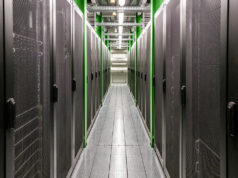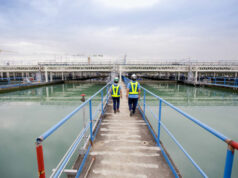A DEVELOPING country such as the Philippines needs energy to support its growth, but can still commit to decarbonize and support the global aspiration to limit the rise in the earth’s temperature by 2 degrees Celsius.
This was the message of Jeremy Bentham, Royal Dutch Shell plc’s vice-president for global business environment and head of scenarios.
“Yes, you can go to net-zero emissions that will be a combination of decarbonizing the power sector [and] deeply electrifying the economy and using in that electricity more things like solar or wind, and using natural gas with carbon capture and then using alongside oil and gas for premium use, developing more biofuels,” he said in an interview.
Mr. Bentham was the guest speaker of the Management Association of the Philippines on Friday and spoke about the “future of energy.”
“A primary challenge is having enough energy to do the things you need to do because you can’t build anything or operate anything without energy,” he said.
“To have a better life for most people, you need to build and do more. Energy is going to be important,” he added.
He said decarbonizing is feasible and can be done in the Philippines over 50 years.
“So you have the opportunity to get it right the first time,” he said.
He said Shell’s role through the changes in the world’s energy needs is evolving.
“Shell is a major energy company. We serve so many people around the world. Just think about consumption of fuels for vehicles. We have more retail sites in the world than McDonald’s. We sell twice as many coffees as Starbucks,” he said.
“So we serve customers with the energy that they need. Now, we know that our customers who need more energy, but we also know that customers that need cleaner energy. So we’re trying to look at the ways we can do and bring that,” he added.
Mr. Bentham said the last decades have been dominated by oil and gas, leaving the perception that the company is an oil and gas company.
“Of course, oil and gas are very important, and they will continue to be important but oil and gas are just a form of energy, and what we really are is an energy company,” he said.
“As our customers change their needs, and as economies develop we will change whatever it is that they need to have,” he added. — Victor V. Saulon



